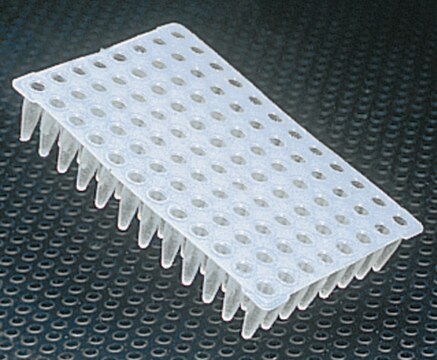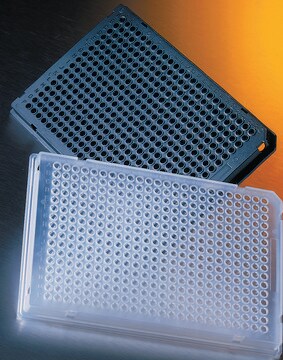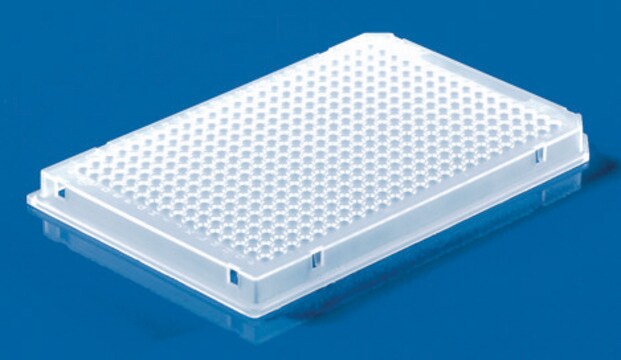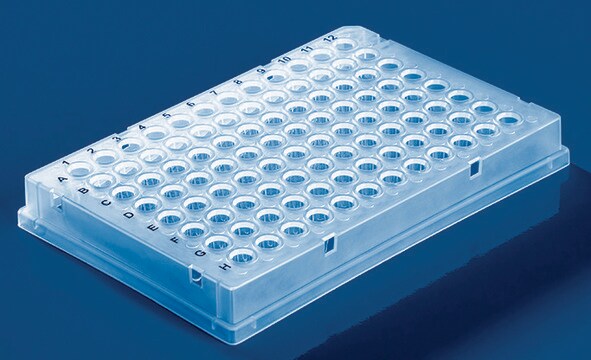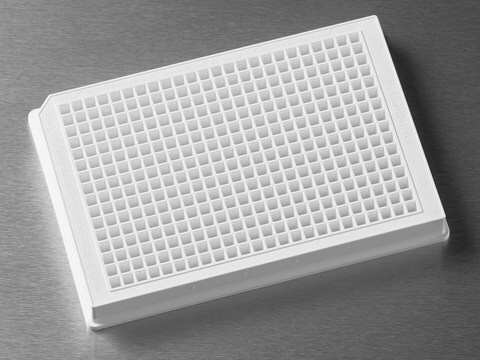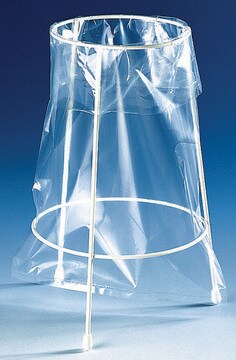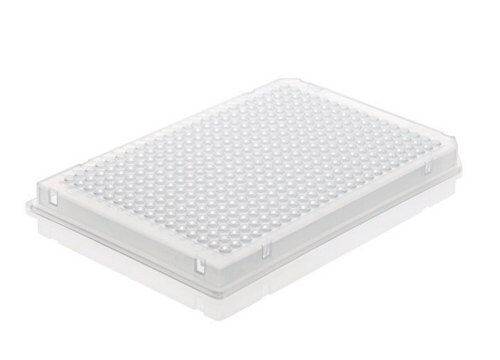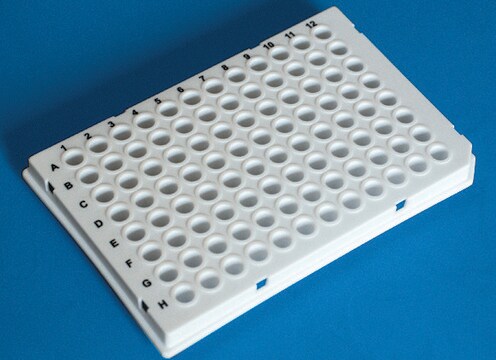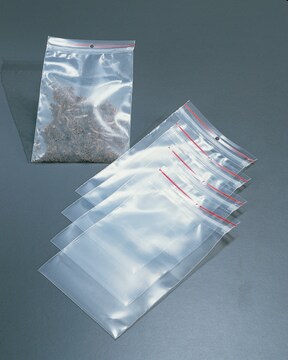Kluczowe dokumenty
Z374911
PCR multiwell plates
size 384 wells, polypropylene, skirt, non-sterile
Synonim(y):
384 multiwell PCR plate, 384 well PCR microplate, 384 well PCR plate, 384 well microtiter plate
About This Item
Polecane produkty
Materiały
colorless polypropylene
polypropylene
sterylność
non-sterile
non-sterile
Właściwości
skirt
opakowanie
case of 50 ea
producent / nazwa handlowa
Sorenson 39620
metody
PCR: suitable
rozmiar
384 wells
pojemność dołka
40 μL
pojemność robocza dołka
25 μL
przydatność
suitable for (PCR, RT-PCR or DNA purification applications)
Zastosowanie
agriculture
Szukasz podobnych produktów? Odwiedź Przewodnik dotyczący porównywania produktów
Opis ogólny
Cechy i korzyści
- Virgin polypropylene
- Fully autoclavable
- Certified DNase- and RNase-free
- Wells have thin walls for rapid temperature equilibration and reduced cycle time
Certyfikaty analizy (CoA)
Poszukaj Certyfikaty analizy (CoA), wpisując numer partii/serii produktów. Numery serii i partii można znaleźć na etykiecie produktu po słowach „seria” lub „partia”.
Masz już ten produkt?
Dokumenty związane z niedawno zakupionymi produktami zostały zamieszczone w Bibliotece dokumentów.
Protokoły
Reverse transcription (RT) is the process of converting RNA to cDNA using a reverse transcriptase enzyme and dNTPs.
Hot Start dNTPs are modified with a thermolabile protecting group at the 3’ terminus. The presence of this modification blocks nucleotide incorporation by DNA polymerase until the nucleotide protecting group is removed during a heat activation step.
The most common application for qPCR is the measurement of a gene transcript or copy number quantity relative to one or more reference genes using probe detection.
Although quantitative PCR uses the same basic concept as traditional PCR, the reactions differ in that the amplicons are generally smaller and are detected indirectly using an additional dye or labeled probe or primer.
Nasz zespół naukowców ma doświadczenie we wszystkich obszarach badań, w tym w naukach przyrodniczych, materiałoznawstwie, syntezie chemicznej, chromatografii, analityce i wielu innych dziedzinach.
Skontaktuj się z zespołem ds. pomocy technicznej